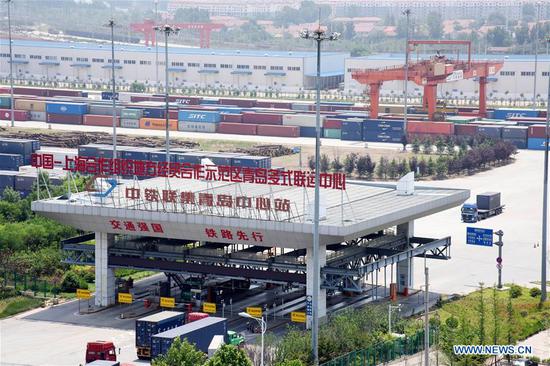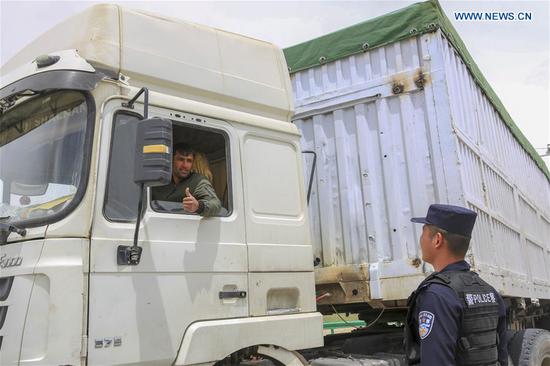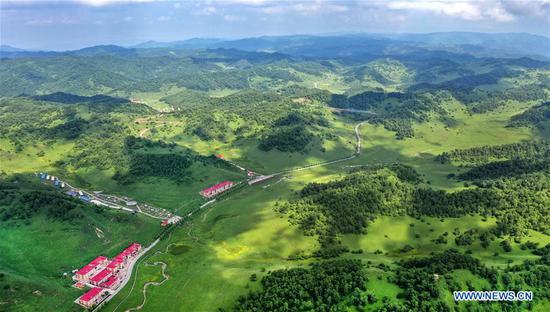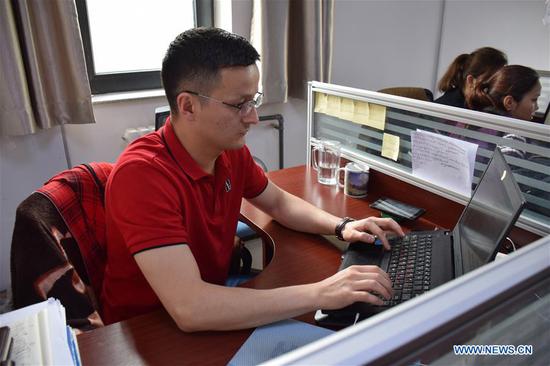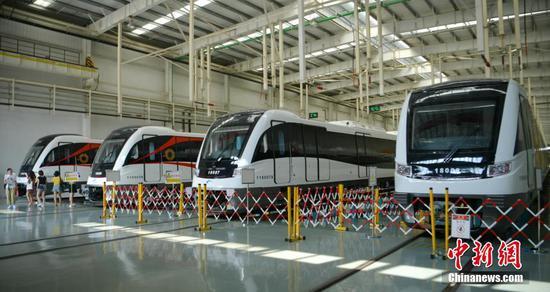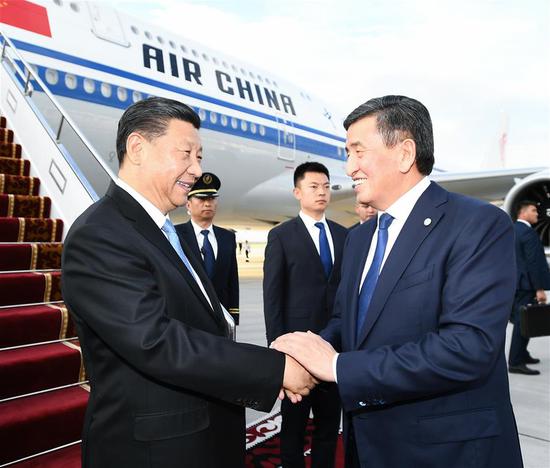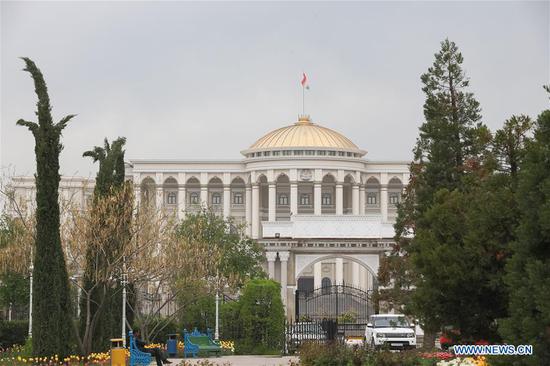For U.S. bike companies, China is almost everything. Whatever they need -- whole bikes, components, or safety accessories -- can be manufactured and sourced from China in large scale, at competitive prices and with great quality.
However, additional tariffs levied by the United States on Chinese imports, including those important to bike business, are forcing U.S. companies to make painful decisions amid the ongoing trade disputes between the world's top two economies: continuing importing from China or sourcing elsewhere.
Either would mean higher costs and more uncertainties for the bike industry, as China, a critical part of the global supply chain, represents the best source and is expected to stay that way for a long time, U.S. bike business owners and insiders have told Xinhua.
TARIFF BACKLASH
"It's like a punch in the gut," said Arnold Kamler, chairman and CEO of Kent International, Inc., when asked to describe his feelings toward the additional tariffs on China-made completed bikes and components, both of which his bike business relies heavily on.
Last year, the U.S. move to impose an extra 10-percent tariffs on 200 billion U.S. dollars of Chinese imports raised Kent International's overall costs by 7.5 percent and led to higher prices, and subsequently a decline of about 5 percent in sales that fall.
The U.S. bike industry is not alone. The nation's economy as a whole suffered a loss of 7.8 billion U.S. dollars last year as a result of the trade disputes with other economies, according to a study published by the U.S. National Bureau of Economic Research, a non-profit research organization.
To make things even worse, Washington unilaterally accelerated trade tensions with China by raising the additional tariffs from 10 percent to 25 percent this May, leaving Kamler no choice but to set up prices again for fear of further sales reduction.
The second wave of tariffs would increase overall retail prices for bikes by 10-12 percent and contribute to a further decline in sales, Bob Margevicius, who is on the board of directors of the U.S. Bicycle Product Suppliers Association, predicted.
"We are concerned coming into the Christmas and the holiday season this can hurt business," Kamler said.
The bike business that 69-year-old Kamler is running was started by his father in 1958 and could date back to 1907, when his grandfather opened a bike shop in New York City.
After weathering various turns in the industry, the family business has made itself one of the nation's largest suppliers of imported and home-made bikes, but the current heavy tariffs levied on key products are what the family business has never run into before.
"We feel it's unfair to us and to many other companies," said Kamler, who is completely against protectionist measures. "While there are disputes that need to be resolved between our countries on trade, I'm wondering why our company is the one having to pay the price for this."
What makes him even more frustrating is that those tariffs are standing in the way of an expansion plan to increase annual production from 350,000 to 1 million, including electric bikes, at his factory in Manning, South Carolina in the next few years.
"But any plans for that kind of expansion are on hold until this tariff issue settles," he said.
MANUFACTURING WON'T RETURN
Detroit Bikes, a bike company founded by Zakary Pashak after he moved in 2011 to Detroit in the state of Michigan, is said to be the only bike frame manufacturer in the United States and one of the few that has an assembly line, which allows him to suffer less from the tariffs.
"It's harder on my competitors. So it's worse for them than it is for me," he told Xinhua.
Pashak's situation is relatively better because his company, unlike most in the U.S. bike industry, does not import completed bikes from China. Although he is not worried about the tariffs on whole bikes now as high as 36 percent, he has to bear extra cost as long as he imports made-in-China parts, including rims, spokes, and tires.
His factory is in the west end of Detroit, the largest city in Michigan and once an industrial hub in the United States. The "Motor City," however, filed for bankruptcy in 2013 due to an over-reliance on manufacturing, poor financial management and a shrinking population.
Thankfully, Detroit, boosted by development within the greater downtown area in recent years, has shown signs of recovery and drawn more entrepreneurs like Pashak. At that time, he was aware that opening a factory was not easy because the business of bike-making had vanished for quite some time in the United States.
"I couldn't find anyone who knew how to make bikes or anyone who could run a production floor. I didn't know how to get any tools," Pashak said.
"So when an industry leaves the country, it's a serious and significant thing. It's very hard to bring it back. And that's what America faces right now," he continued.
Experts have long dismissed claims that extra tariffs would bring back manufacturing jobs in a substantial manner to the United States, where labor and other costs tend to be much higher than in China and other overseas manufacturing hubs.
At the very least, tariffs are not helping create jobs in the U.S. bike industry but only forcing businesses to look for alternative sources, for instance, Cambodia, Pashak said.
BEST SOURCE
Pashak also noted that the U.S. businesses impacted by the trade tensions are seeking ways of walking around the tariffs, but excluding China is not a feasible option.
"I don't think it's possible to completely remove China from the equation. There's too much there. There's also great engineering. Dealing with Chinese factories is a pleasant experience," Pashak said. "We don't see that type of efficiency in the United States."
China, with an expertise in the bike industry, has been the main source of supply for U.S. companies for decades. Cooperation goes far beyond the bike industry.
"I find that the Chinese companies have done an excellent job in making capital investments in automation and new technologies and in finding ways to improve the efficiency and the productivity of the products that they're producing," Margevicius told Xinhua. "It's very hard for us to look at other places and replicating it."
The number of completed bikes that the United States import from China annually has been pretty stable, ranging 14-15 million, accounting for over 90 percent of all bikes imported to the nation, according to Margevicius.
But for the first quarter of this year, there was a decline of 450,000 bikes due to higher costs caused by the first wave of extra tariffs on the product.
Industry watchers have said that there has been an initiative among U.S. bike companies to seek alternative sources in Southeast Asia and relocate their production line as part of a global supply chain re-adjustment plan, while noting the process requires years to complete and is more challenging for mass market brands to begin.
"It would be very difficult for them to transit and move out. And a lot of that just has to do with the sheer volume. There's a broad availability of labor. The manufacturing cluster is located in China," Margevicius explained.
Margevicius, also executive vice president at Specialized Bicycle Components, a large U.S. importer and a brand selling bicycles worldwide, warned that labor and land costs, which are relatively low in Southeast Asia, would go up and even become an issue if bikes businesses go there in a swarm.
"We've had a great success in working in China with our Chinese partners. We operate with them not just as customer suppliers, said Kamler. "We've developed a very close rapport with them."




















